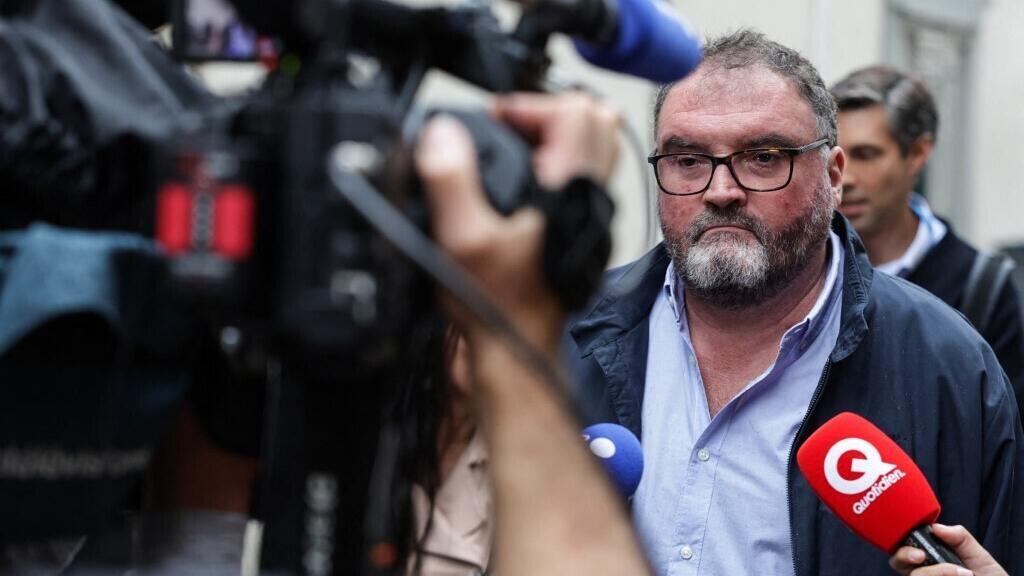
The trial of a French anaesthetist accused of intentionally poisoning 30 patients, 12 of whom died, begins on Monday after a seven-year investigation. The accused is alleged to have wanted to show off his resuscitation skills and discredit co-workers.
Frederic Péchier, 53, worked as an anaesthetist at two private clinics in the eastern French city of Besançon, where several patients went into cardiac arrest in suspicious circumstances between 2008 to 2017. Twelve could not be resuscitated.
His youngest alleged victim, four-year-old Teddy, survived two cardiac arrests during a routine tonsil surgery in 2016. The doctor's oldest alleged victim was 89.
The trial, held in Besançon and expected to last until December, comes after a seven-year investigation that stunned the medical community.
"I've been waiting for this for 17 years," said Amandine Lehlen, whose 53-year-old father died of cardiac arrest during kidney surgery in 2008. An autopsy revealed an overdose of lidocaine, a local anaesthetic.
Péchier faces life imprisonment if convicted. The father of three, who has been banned from practising medicine, denies the charges.
He is currently under judicial supervision – an alternative to pre-trial detention.
French doctor charged in 17 new cases of poisoning
Alleged conflict with colleagues
An investigation was launched in January 2017, after 36-year-old Sandra Simard suffered a suspicious cardiac arrest during an operation at the Saint-Vincent clinic in Besançon.
A potentially lethal dose of potassium was discovered in a saline bag used for her anaesthesia.
Suspicion quickly fell on Péchier, who was detained and charged two months later.
Prosecutors allege he had contaminated infusion pouches used by colleagues in order to create operating room emergencies where he could intervene to show off his supposed resuscitating talents.
"What he is accused of is poisoning healthy patients in order to harm colleagues with whom he was in conflict," said Prosecutor Etienne Manteaux.
"Frederic Péchier was the first responder when cardiac arrest occurred," he added. "He always had a solution."
'Perverse traits'
Pechier has argued that the majority of poisonings were the result of "medical errors" made by his colleagues.
"I am being accused of heinous crimes that I did not commit," he said in 2017.
His defence team says he "has every intention of proving his innocence in this case".
A psychological evaluation of the accused carried out in 2019 – and roundly criticised by his defence lawyers – pointed to a "controlling personality" and "perverse traits".
He is also believed to suffer from depression.
In 2014 he attempted suicide, and in 2021 he fell from a window at his parents' house in a drunken state.
Over the course of the seven-year investigation, more than 70 reports of "serious adverse events" were examined – medical terminology for unexpected complications or deaths among patients.
The cases of 30 patients who suffered cardiac arrest during surgery at the Saint-Vincent Clinic and the Franche-Comte Polyclinic made it to trial.
According to L'Est Républicain, police had to investigate 1,514 people "who could have had access to the operating theatres" at both clinics. Péchier was the only one whose name appeared at both locations.
The newspaper reported that before Péchier's brief stint at the Polyclinique de Franche-Comté in 2009, there had been no such incidents reported there.
After he left, following a financial dispute, they ceased. Similarly, Saint-Vincent clinic has had no such events since his arrest.
French surgeon handed maximum 20-year term in paedophilia trial
A 'dizzying case'
Manteaux has called the case "unprecedented in French legal history". Investigators needed years to master the medical knowledge required, identify the alleged crime pattern and determine various methods of operation.
The investigation also required four exhumations of bodies – a rare judicial decision that the prosecutor said was necessary, despite being "technically complicated, expensive and traumatic for families".
More than 150 civil parties, including a trade union for anaesthetists, will be represented at the trial.
It is a "dizzying case" due to its "scale, duration and technical complexity," said Frederic Berna, one of 55 lawyers representing the victims.
Ahead of the trial Pechier said he was "not particularly anxious".
"I have to fight one last time to bring this to an end," he told broadcaster BFMTV. "I'm not tired. I'm not angry. I just want people to listen for once."
(with newswires)







